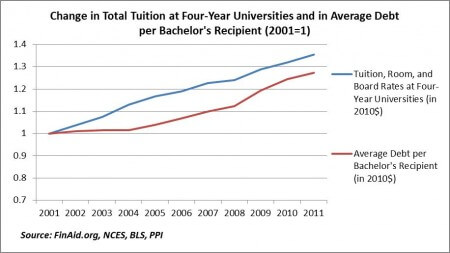Overhauling the federal tax system is one of the most important steps U.S. political leaders can take to promote economic growth and fairness. It is also that rarest of issues in today’s Washington—one that commands broad support on both sides of the political aisle. For these reasons, the Progressive Policy Institute urges the White House and Congress to give top priority to fixing our broken tax system over the next 12 months.
Everyone knows our tax code is too complicated, too inefficient and too riddled with preferences for special interests. Americans deserve better. PPI believes we need a federal tax system that is simpler and more progressive; that steers investment into productive, job-creating activity; that enables U.S. workers and companies to compete on an even footing in world markets; and, that serves the most basic purpose of any tax system—raising enough revenue to finance the government while ensuring fairness to taxpayers.
Comprehensive tax reform obviously poses daunting political obstacles. Nevertheless, it’s a goal Democrats and Republicans share. The Senate Finance Committee has published 10 papers on various options while the House Ways and Means Committee has organized 11 subgroups to consider different areas of the tax law. Over 1000 comments have been filed. With Sen. Max Baucus retiring this year, and Rep. Dave Camp term-limited as chair of the House Ways and Means Committee, the two most important players on tax policy are strongly motivated to get something done.
This paper will not offer a sweeping blueprint for reform. Instead it focuses on one crucial aspect of reform: Simplification. PPI has long argued that our tax system is too complex and ill-fitted to the needs of middle-class families and small entrepreneurs. They benefit little from the existing array of incentives and loopholes, which are mainly targeted on special interests or people with a level of income and wealth they can only dream about. The code’s byzantine complexity also costs business and individuals hundreds of billions in compliance. In a recently released annual report to Congress, the IRS’s National Taxpayer Advocate, Nina Olson, estimated that individual and business taxpayers spent 6.1 billion hours to complete filings. The bloated federal code contains almost four million words and on average has more than one new provision added to it daily.
The code is so complex that nearly 60 percent of taxpayers hire paid preparers and another 30 percent rely on commercial software to prepare their returns.
In fact, according to PricewaterhouseCoopers, only four nations have more pages of “primary tax legislation” than does the United States. And the World Bank’s www.doingbusiness.org ranks 61 nations as having tax systems friendlier to business than does the United States, while the World Economic Forum puts the U.S. tax system in 107th place in a ranking of the efficiency of 117 national tax regimes.
Congress perennially fiddles with the code, and it takes a full-time army of lobbyists to keep track of all the changes: the Treasury Department reports that there have been more than 14,400 revisions since 1986. It is imperative, then, that any comprehensive overhaul of the federal tax system not make the code even bigger and more complicated. Tax reform without dramatic simplification should not be considered genuine reform.



